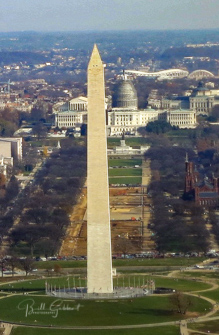
I have to admit that I have become a bit cynical about firefighter legislation. We dutifully report when a bill is introduced that specifically affects wildland firefighters, but they almost never progress beyond the committee stage. A person has to wonder why these bills are drafted if they stand so little chance of seeing the light of day. Is it because Congress is so dysfunctional that very few bills get passed at all unless they are absolutely critical to keeping the doors of government open? Or, do politicians simply want to get their name out there hoping voters will remember it the next time they are up for reelection? Maybe this year with both houses and the Presidency controlled by one party more can get done (he thought very optimistically).
Having said that, below we have information about two bills that were introduced in the Senate on April 26. They are both cosponsored by Senators Steve Daines (D-MT) and Maria Cantwell (R-WA). A handful of other Senators have said they intend to sign on as cosponsors.
S.949 – Wildland Firefighter Recognition Act
It would require the Director of the Office of Personnel Management to create a classification that more accurately reflects the role of wildland firefighters in the Departments of Interior and Agriculture. Their official title would become “Wildland Firefighter”. Employees currently employed, many of them with the title “Forestry Technician”, would have the choice of retaining their previous job series or moving to the new Wildland Firefighter series.
In a press release, the two Senators wrote:
Providing wildland firefighters with the proper title will improve recruitment efforts and morale and also give due recognition to those brave individuals who risk their lives to protect others’ and their property.
Text of the bill as of April 26, 2017. Track the progress of the bill.
S.950 – Wildland Firefighter Fairness Act
This bill has a number of provisions, some of which have been proposed before in various forms:
- A pilot program would authorize the department Secretaries to allow seasonal employees to work beyond their 1,040-hour per year limit “in a given year if the covered Secretary determines the expansion to be necessary to stage fire crews earlier or later in a year to accommodate longer fire seasons.”
- The incident qualification systems of the Departments of Interior and Agriculture would be merged into one, and no agency would be allowed to require additional competencies to become qualified for a position.
- It would allow a firefighter who was injured and disabled on the job to retain the 20-year firefighter retirement track if they return to work in a non-fire position, rather than converting to the 30-year retirement program of ordinary federal employees. It would also allow the injured firefighter’s history of overtime pay to be considered as income for purposes of calculating worker’s compensation disability benefits.
In our April 20 interview with Dan Buckley, the National Fire Director for the National Park Service, he talked about the need for extending the terms of seasonal firefighters, the first item listed in the description of the above bill. That topic begins at 11:49 in the video.
Text of the bill as of April 26, 2017. Track the progress.
The legislation will be considered by the Senate Homeland Security and Governmental Affairs Committee. A source in D.C. who is not authorized to speak publically on this subject told me that the plan is to “staple” these two bills to others related to firefighting, such as the Firefighter Cancer Registry Act of 2017 introduced in February (which would include wildland firefighters) and the reauthorization of the Assistance to Firefighters (AFG) and Staffing for Adequate Fire and Emergency Response (SAFER) grant programs. The strategy is that if these (hopefully) non-controversial bills are stapled together they could be passed in the Senate with very little debate and a quick unanimous vote — perhaps two to three months from now.
One hurdle to overcome is the fact that little or no action can occur legislatively until the Administration first says yay or nay. And the politically appointed positions that would review these proposed bills are still vacant.
Now what?
If wildland firefighters have an opinion about this introduced legislation, they should contact their Senators and Representative.

Our current leadership in DC could care less about the boots on the ground. Sure, they’ll make a few positive comments, take a few photo ops etc.
Our current political climate is a childish brawl. If we have a less damaging fire season our politicans will take credit, if it’s a destructive season they blame the last group.
I’d hate to be a 25 year old crew member going for a permanent position or looking to have career in fire.
“politicians simply want to get their name out there hoping voters will remember it the next time they are up for reelection”
Often bills are “trial balloons” to see what support or opposition surfaces after introduction.
After leaving fire management I ended up in trucking a highly regulated industry where lobbying Congress and tracking legislation is a regular issue.
Unfortunately our legislative process involves professional lobbyists which are needed to track and provide information on active legislation to members of Congress. Unfortunately a bill’s merits rarely ensure passage. It’s a combination of merits and effective lobbying.
In trucking, Public Law 113-45 the sleep apnea in trucking bill went through Congress in 2015 in 3 weeks during the government shutdown with not a single vote in opposition. Having been involved with the lobbying efforts it was a combination of professional lobbying by major trade associations combined with an organized grass roots effort to ring the phones of their Congressional representatives by individual truck drivers.
Unfortunately for wildland fire I don’t see this type of political lobbying efforts in place.
Maybe wildland fire needs to begin lobbying efforts on issues.